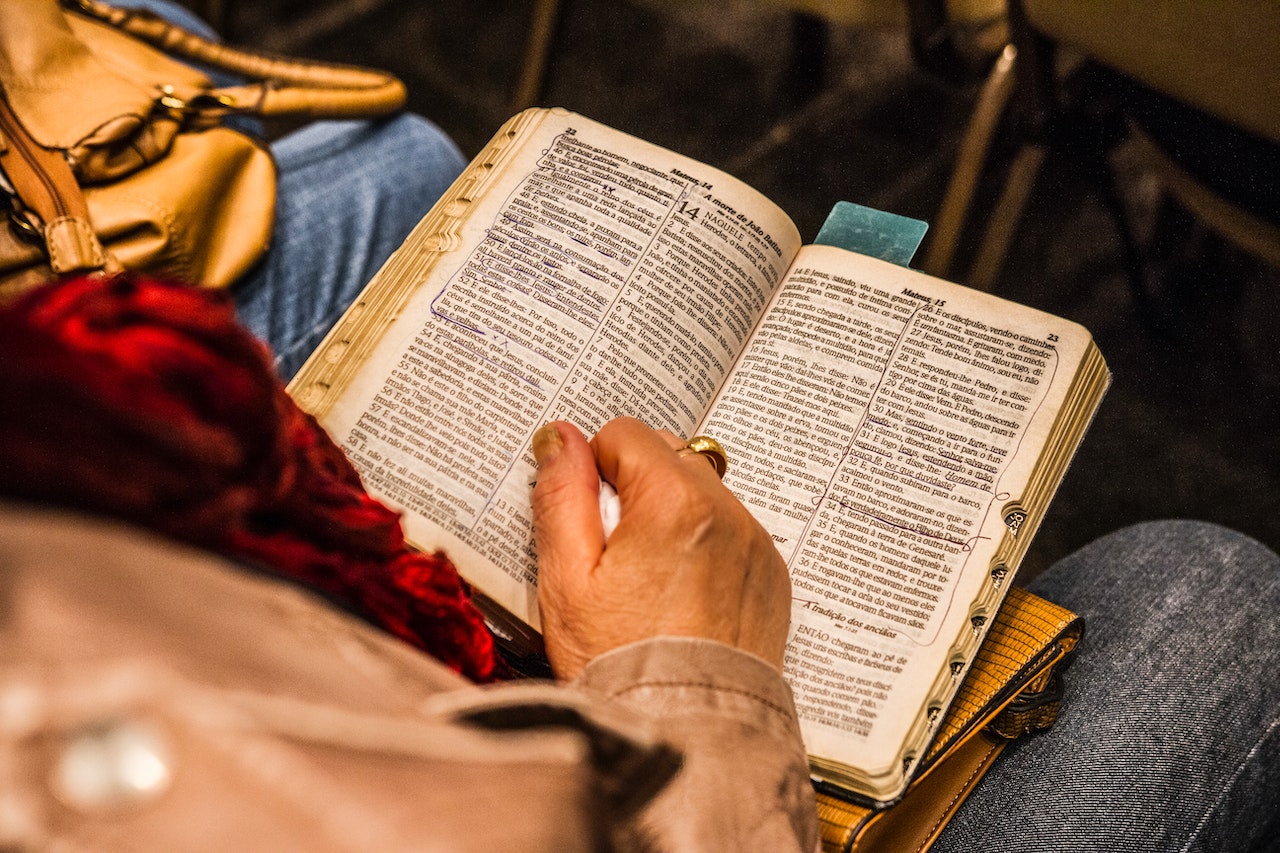The story of the Tower of Babel is a biblical narrative found in the Book of Genesis. It recounts the construction of a tower by the people of Babel and the subsequent confusion of their language. The question of whether God destroyed the Tower of Babel is a matter of interpretation and belief.
Table of Contents
The Historical Context of the Tower of Babel
The story of the Tower of Babel is one that has fascinated people for centuries. It is a tale of ambition, pride, and divine intervention. But did God really destroy the Tower of Babel? To answer that question, we need to delve into the historical context of the story.
The story of the Tower of Babel is found in the book of Genesis in the Bible. According to the biblical account, after the great flood, humanity began to gather in one place and decided to build a tower that would reach the heavens. They believed that by doing so, they could make a name for themselves and prevent being scattered across the earth.
This story takes place in a time when humanity was still in its infancy. People were just beginning to explore and understand the world around them. They were filled with curiosity and a desire to leave their mark on the world. The Tower of Babel was a symbol of their ambition and their desire to reach the divine.
However, the story also tells us that God was not pleased with their actions. He saw their pride and arrogance and decided to intervene. He confused their language, causing them to speak different tongues, and scattered them across the earth. This event is often seen as the origin of different languages and the reason why people speak different languages today.
But why did God destroy the Tower of Babel? Some argue that it was because of the people’s pride and their attempt to reach the heavens. They believe that God wanted to remind humanity of their place in the world and that they should not try to elevate themselves to the level of the divine.
Others see the destruction of the Tower of Babel as a necessary step in the development of humanity. They believe that God wanted to prevent humanity from becoming too powerful and unified. By scattering them across the earth and confusing their language, God ensured that no single group could dominate the world.
Regardless of the reasons behind God’s actions, the story of the Tower of Babel serves as a cautionary tale. It reminds us of the dangers of pride and the consequences of trying to reach beyond our limitations. It teaches us that we should always be humble and respectful of our place in the world.
In conclusion, the story of the Tower of Babel is a fascinating one that raises many questions. Did God really destroy the Tower of Babel? While we may never know for sure, the historical context of the story provides us with some insights. It reminds us of the early days of humanity and the desire to leave a lasting legacy. It also serves as a reminder of the dangers of pride and the importance of humility. Whether or not God destroyed the Tower of Babel, the story continues to captivate our imaginations and teach us valuable lessons about our place in the world.
The Biblical Account of the Tower of Babel
The Tower of Babel is a fascinating story found in the book of Genesis in the Bible. It tells the tale of a group of people who decided to build a tower that would reach the heavens. According to the biblical account, these people were united in their language and had a common goal of making a name for themselves. They believed that by building this tower, they could reach God and become like Him.
The story begins with the people settling in the land of Shinar, which is believed to be in modern-day Iraq. They started constructing a tower made of bricks and tar, intending to reach the heavens. However, God saw their arrogance and decided to intervene.
In the biblical account, God said, “If as one people speaking the same language they have begun to do this, then nothing they plan to do will be impossible for them.” Recognizing the potential danger of their unity and ambition, God decided to confuse their language so that they could no longer understand each other.
This confusion led to the scattering of the people across the earth, as they could no longer communicate effectively. The tower was left unfinished, and the people were dispersed into different nations, each with its own language.
The story of the Tower of Babel raises several questions. Did God destroy the tower because He was threatened by the people’s ambition? Or was there another reason behind His actions? Some argue that God’s intervention was necessary to prevent the people from becoming too powerful and prideful. By confusing their language, God ensured that they would not be able to achieve their goal of reaching Him.
Others believe that God’s actions were not driven by fear or jealousy but rather by a desire to protect humanity from its own arrogance. The tower represented a rebellion against God’s authority and a desire to become like Him. By scattering the people and confusing their language, God was reminding them of their limitations and their need for Him.
Regardless of the interpretation, the story of the Tower of Babel serves as a cautionary tale about the dangers of pride and the importance of humility. It reminds us that we are not gods and that our ambitions should be aligned with God’s will.
The Tower of Babel also highlights the significance of language and communication in human society. Language is a powerful tool that allows us to connect with one another and understand different perspectives. When language is disrupted, as it was at Babel, it can lead to confusion, division, and isolation.
In conclusion, the biblical account of the Tower of Babel tells the story of a group of people who sought to reach God through their own efforts. God, recognizing the potential danger of their unity and ambition, intervened by confusing their language and scattering them across the earth. Whether God destroyed the tower out of fear or a desire to protect humanity, the story serves as a reminder of the dangers of pride and the importance of humility. It also emphasizes the significance of language and communication in human society.
The Theological Implications of the Tower of Babel
The story of the Tower of Babel is one that has fascinated people for centuries. It is a tale of human ambition and divine intervention, a cautionary tale about the dangers of pride and the consequences of disobedience. But did God really destroy the Tower of Babel? And if so, what are the theological implications of this event?
According to the biblical account, the people of Babel decided to build a tower that would reach the heavens. They wanted to make a name for themselves and establish their own greatness. But God saw their arrogance and decided to intervene. He confused their language, causing them to speak different tongues and scattering them across the earth.
This story raises several theological questions. First and foremost, it challenges our understanding of God’s nature. Some may argue that God’s actions in destroying the tower were harsh and punitive. After all, the people were simply trying to build something impressive. But others may see it as an act of divine mercy. By scattering the people and confusing their language, God prevented them from becoming even more prideful and self-centered.
The Tower of Babel also raises questions about human nature. It reminds us of our inherent tendency towards pride and self-glorification. The people of Babel wanted to make a name for themselves, to establish their own greatness. In doing so, they were defying God’s authority and seeking to exalt themselves above Him. This story serves as a reminder that we are called to humble ourselves before God and acknowledge His sovereignty.
Furthermore, the Tower of Babel highlights the importance of unity and communication. When God confused the people’s language, He effectively disrupted their ability to work together and achieve their common goal. This serves as a cautionary tale about the dangers of division and the importance of unity in our relationships and communities.
From a theological perspective, the Tower of Babel also points to the power and sovereignty of God. It reminds us that God is not limited by human achievements or ambitions. No matter how great our accomplishments may seem, they pale in comparison to the greatness of God. This story challenges us to put our trust in God rather than in our own abilities and achievements.
In conclusion, the story of the Tower of Babel raises important theological questions about God’s nature, human nature, unity, and the power of God. It challenges us to examine our own hearts and motivations, reminding us of the dangers of pride and self-glorification. Ultimately, it calls us to humble ourselves before God and trust in His sovereignty. So, did God destroy the Tower of Babel? Yes, He did. And in doing so, He left us with a powerful reminder of His authority and our need for Him.
The Cultural Significance of the Tower of Babel
The story of the Tower of Babel is one that has captivated people for centuries. It is a tale of ambition, pride, and divine intervention. But beyond its religious significance, the Tower of Babel holds a cultural significance that is worth exploring.
In the biblical narrative, the Tower of Babel was a massive structure built by the people of the earth. They had one language and a common purpose: to build a tower that would reach the heavens. This ambitious project was seen as an act of defiance against God, who had commanded humanity to spread out and populate the earth.
As the tower grew taller and taller, God looked down upon it and decided to intervene. He confused the language of the people, causing them to speak in different tongues. This linguistic division led to the abandonment of the tower and the scattering of the people across the earth.
The story of the Tower of Babel has been interpreted in various ways throughout history. Some see it as a cautionary tale about the dangers of pride and the consequences of defying God. Others view it as a metaphor for the diversity of languages and cultures that exist in the world.
From a cultural perspective, the Tower of Babel represents the human desire for unity and the challenges that arise when different groups of people come together. It highlights the importance of communication and the role it plays in fostering understanding and cooperation.
The tower itself symbolizes human ambition and the pursuit of greatness. It serves as a reminder that while ambition can lead to great achievements, it can also lead to hubris and downfall. The story of the Tower of Babel teaches us the importance of humility and the need to respect the limits set by a higher power.
Furthermore, the linguistic division caused by God’s intervention highlights the power of language in shaping our identities and influencing our interactions with others. Language is not just a means of communication; it is a reflection of our culture, history, and worldview. The Tower of Babel reminds us of the richness and diversity that exists in the world, and the need to embrace and celebrate these differences.
In today’s globalized world, the story of the Tower of Babel is more relevant than ever. We live in a time when people from different cultures and backgrounds are constantly coming into contact with one another. The challenges of communication and understanding are ever-present, but so are the opportunities for growth and learning.
The Tower of Babel serves as a reminder that despite our differences, we are all part of a shared humanity. It encourages us to find common ground and work towards a more inclusive and harmonious world. By embracing diversity and fostering dialogue, we can overcome the barriers that divide us and build bridges of understanding.
In conclusion, the cultural significance of the Tower of Babel lies in its exploration of human ambition, the power of language, and the challenges of unity in diversity. It teaches us important lessons about humility, communication, and the need to embrace and celebrate our differences. As we navigate the complexities of our modern world, the story of the Tower of Babel continues to resonate and inspire.
Conclusion
Yes, according to the biblical account in Genesis 11:1-9, God destroyed the Tower of Babel.
For licensing reasons, we must provide the following notice: This content was created in part with the help of an AI.


